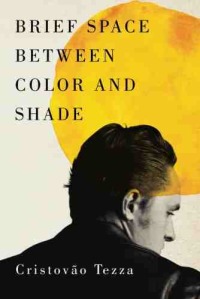
First published in Brazil in 1998 and revised in 2013; published in translation by AmazonCrossing on August 19, 2014
Tato Simmone is a painter in Curitiba who exists on the monthly allowance he receives from his mother, an art and antiques dealer in New York. He has little interest in his mother, or in his father (who resents not receiving a similar allowance), or in the half-sister he hopes never to meet again. A year earlier, he had an ambiguous encounter with an older woman who now writes to him from Italy -- pages from her lengthy melancholic "testament" appear during the novel at regular intervals -- but the only significant friend in his life, a painter who was also his mentor, has just died.
At his mentor's funeral, Tato meets Richard Constantin, an art dealer with a shady reputation. He also meets a woman Constantin describes as a vampire. She can no longer suck the life out of Tato's mentor and seems intent on latching onto Tato as a substitute. Tato gives some of his time to the woman but never bothers to learn her name, referring to her only as "the vampire."
The novel's scattered moments of intrigue begin after the funeral, when Tato discovers that someone has broken into his home. On a later occasion, an unseen burglar in his studio punches him in the eye, yet nothing is taken. Threats he does not understand are left on his answering machine. As Tato ponders that mystery, another pops up. His mother, his father, the Italian, and Constantin all have a puzzling interest in a bust by Modigliani -- or is it a fake? And if it is a fake, why are the interested parties so interested in it? I would have been happier with this novel if it had produced more satisfactory answers to those questions. Instead, the abrupt ending leaves many questions hanging in the air. The novel is like an unfinished painting (the kind that Tato most often produces).
Tato is clearly not a happy guy. Transfixed in the composition of a painting, Tato experiences "a powerful illusion of forgetting, which, if I give in to it, I would call happiness." Tato's pompous and judgmental personality is so grating that it is difficult to work up any sympathy for him. Like his Italian friend, Tato seems intent on being miserable and prefers to wallow in self-pity rather than pursuing happiness. Still, he derives a measure of happiness by engaging in pretentious discussions of art and literature and love that seem designed to impress more than to illuminate.
Brief Space is a novel of lush prose employed to tell a story that is too often tedious. Gorgeous sentences unfurl but, in the end, say too little that I found meaningful. Tato's narration of his self-obsessed life is occasionally interrupted by communications (in the same voice) from Tato's self-obsessed mother and from his self-obsessed Italian friend, but those characters made me want to kill myself. Tato at least indulges in unexpected behavior when he tries to steal the Modigliani, but there are too few of those interesting moments to offset all the tiresome angst.
On several occasions, characters in the novel compare painting to literature. If I were to make that comparison, I would describe Brief Space Between Color and Shade as surrealist. In the last several pages, the artist and works of art conflate, as if the artist is inhabiting the art. What do those pages mean? I could guess, but your guess is as good as (probably better than) mine. There are many ways to interpret a work of literature, just as there are many ways to interpret an abstract painting. If you like the kind of novel that is open to interpretation, Brief Space is a novel you might enjoy. I generally admire that kind of novel, but Brief Space left me so perplexed (not entirely in a good way) that I don't know how to feel about it. I'm therefore recommending it with reservations but with the recognition that a discerning reader might find more value here than I did.
RECOMMENDED WITH RESERVATIONS